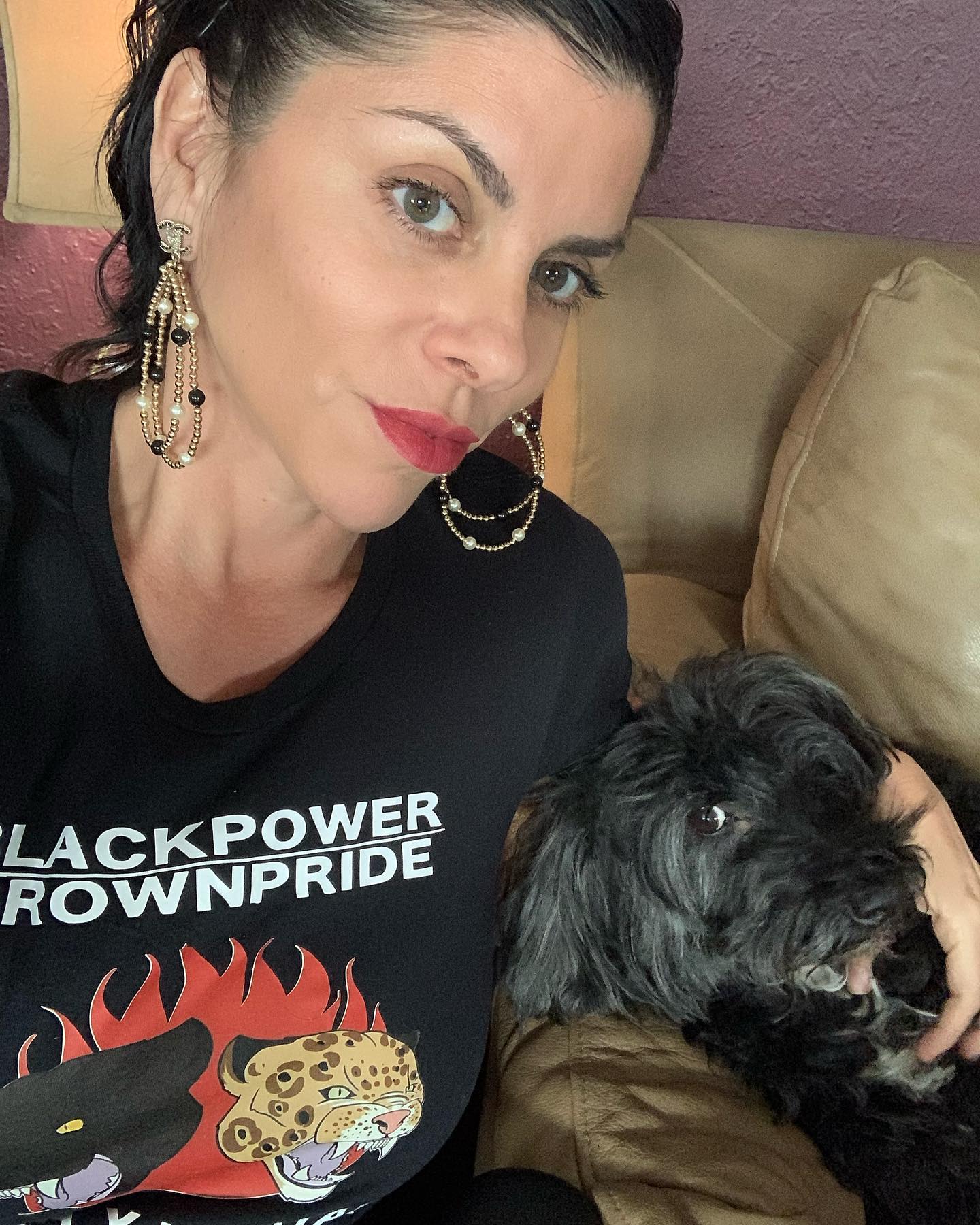
Chaz Garcia (with dog
Barkley), wearing a shirt made for her by a former third grade student.
Chaz Garcia had never heard of CTA’s Ethnic Minority Early Identification and Development (EMEID) program when a leader at her chapter, Oakland Education Association, asked her to apply seven years ago. In fact, even though she was a rising OEA leader herself, she had limited knowledge of CTA. But she was intrigued, so she applied and was accepted. Her year in the program, which helps members of color broaden their knowledge of CTA and explore possible roles in leadership, was life-changing.
“I’m very grateful I had the opportunity to go on this journey and connect with other educators,” says Garcia, who became EMEID chair in early 2020 and serves as OEA’s 2nd vice president and bargaining chair. “Our cohort learned a lot from each other and created lifelong bonds and a support system.”
For ethnic minority members who had previously navigated their lives and careers in isolation, much of their support stemmed from discovering that they weren’t alone. “I was going through my life and work as one of the only women of color, not being able to have people to relate to in my journey,” recalls Garcia, now in her 26th year as an educator.
EMEID also offered other valuable growth experiences, as it builds
on existing CTA/NEA programs, trainings, conferences and events, and
incorporates coaching and interaction with CTA leadership. “I appreciated my EMEID mentor, going to State Council, connecting with others in different levels of leadership,” Garcia says.
Garcia has become a tireless advocate for racial equity, both within CTA and in the larger world. She is now a member of CTA’s Racial Equity Steering Committee and the Racial and Social Justice Advisory Committee, both of which work toward an inclusive CTA that involves and empowers its members.
“I’m grateful I had the opportunity to go on the EMEID journey. Our cohort learned a lot from each other and created lifelong bonds and a support system.”
As EMEID chair, she leads the EMEID workgroup and has ambitious plans to expand the program’s reach and touch more members of color. For example, she’d like to bring in past EMEID participants to serve as mentors to current participants and provide an additional layer of support.
“The ability of folks of color to grow and navigate through the education
world is a little challenged if others [who mentor them] don’t have the same experiences and journey,” she says. “Past participants have hindsight and experience and can provide coaching.”
She also wants to reach those turned away from EMEID because of
capacity issues. “We could create some sort of structure or network that is beneficial for everyone, that gets everyone engaged and lets us support each other in, for instance, different campaigns on an organizing level.”
Garcia’s journey, boosted by the EMEID program, continues.